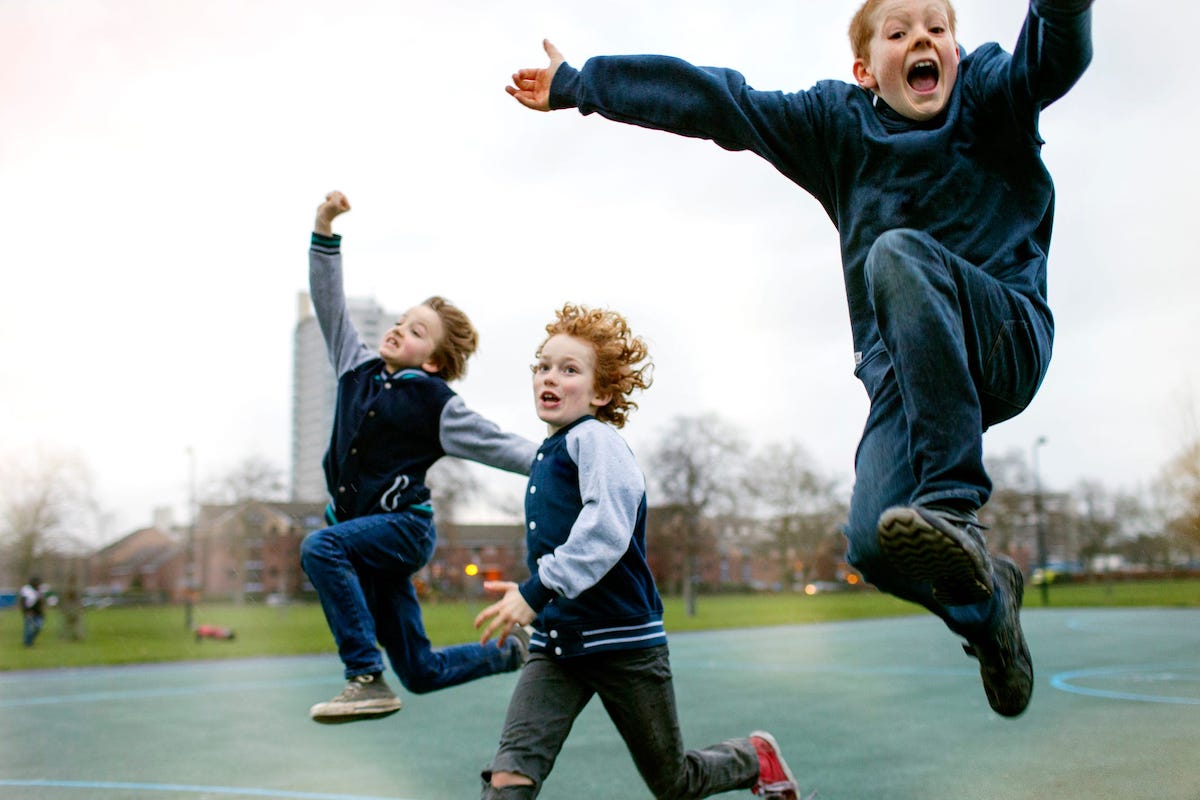How do I help my highly emotional 5-year-old learn to build emotional resilience? I want to support her and recognize her feelings as valid, but I have a hard time supporting crying when the situation doesn’t call for it. For example, today she dressed herself and walked into the kitchen where I was making breakfast. I said, “We can’t wear that shirt today because it’s from the dirty-clothes basket, and it’s covered in mud from the playground.” This immediately led to crying, which I really don’t think matches the situation. There was no yelling, no disdain, nothing negative in my communication. I just stated a fact. I want to make my daughter feel loved and supported, and I also want her to build resilience.
—An INTJ trying to kindly parent an extroverted feeler
I also have a 5-year-old daughter who gets disproportionately upset about what I consider to be small things, and it often drives me crazy. So please understand that I empathize completely with your experience. But the first bit of advice I have for you is just to wait. What you’re describing is completely age-appropriate behavior. You call your daughter “highly emotional,” but I’d challenge you to find a 5-year-old who isn’t! At this age, outsize reactions to minor stressors are developmentally normal. Young children haven’t yet developed the emotion and behavior regulation abilities that adults have, nor have they fully internalized social norms. But rest assured that, with time and patience, your daughter will gradually develop more mature ways of handling frustration, disappointment, and anger.

That said, there are effective strategies you can use to help develop her capacity for regulation and resilience. Language plays a crucial role here, and parents can support their children’s development by modeling how language can be used to process and modulate feelings. While many people focus on building children’s emotional vocabulary, recent research suggests that simply labeling emotions (e.g. “You’re so disappointed about your shirt!”) isn’t particularly effective for enhancing emotion regulation. Instead, the key lies in modeling two crucial skills: emotion reappraisal and mindful acceptance.
Emotion reappraisal involves helping children change how they think about a situation to alter its emotional impact. Mindful acceptance means teaching them to view emotions as temporary experiences that can be acknowledged and let go. In the case of the dirty shirt, instead of just stating the fact that it can’t be worn, you might try something like “It’s a bummer that you can’t wear that shirt right now, but it will be so fun to wear it tomorrow when it’s clean! Plus, this gives you a chance to wear your unicorn dress to the park, which will be so much fun!”
This approach combines both reappraisal (shifting focus to the positive alternatives) and acceptance (acknowledging the disappointment while emphasizing its temporary nature). It’s likely to be more effective than simply labeling the emotion or, alternatively, failing to acknowledge her feelings.
As for your concern about making your daughter feel loved and supported while building resilience: the very fact that you’re thinking so carefully about this balance suggests you’re already providing the emotional security she needs. Remember that building resilience doesn’t mean eliminating emotional responses; it means developing healthy ways to process and move through them.
Community Guidelines




















Log in
Hi ParentData team,
Just went down a rabbit hold on googling ways to teach emotional reappraisal and mindful acceptance for 4.5 year olds. I looked into the three “discipline” programs you guys recommend (123 Magic, Triple P, and Incredible Years) and wasn’t sure this is exactly what I need. I found the Kazdin method via this APA article (https://www.apa.org/topics/parenting/emotion-regulation), and wondering what the data says on this method? Or can you point me to any other data driven implementation methods specifically for this? TY in advance!
Another INTJ mom here! Definitely empathizing with you on this one. Those big emotions are so exhausting for us in spite of the fact that they’re normal for this stage of development. It’s also so hard to come up with those Fe positive responses on the fly. What I think is the crux of the issue is that even though they’re little, they also have their own plans for the day. She wants to and was planning to wear that shirt, but that’s obviously a no go. What I’ve found works for my daughter when this happens (she wants to wear the same flower dress every single day!) is to acknowledge the feeling/s (not necessarily name it), and then kindly tell her what the next steps are so she knows what to expect. Ie “Sweetie, we don’t take clothes out of the hamper. I know you’re feeling disappointed your flower dress is dirty, but let’s go choose another outfit to wear today instead. I’m doing laundry tomorrow so you’ll be able to wear it again in 2 days.” Usually I’ll ask if she needs a hug if there’s crying after that. I find the hug makes both of us feel better. Also I’ve explained many times that feelings are fleeting and then try to redirect her attention to something else (helping me in the kitchen for instance). So this seems pretty similar to the advice above, but more Te friendly!
Here’s something to brighten your day!
https://m.youtube.com/watch?v=b0ZnBbVoT2E